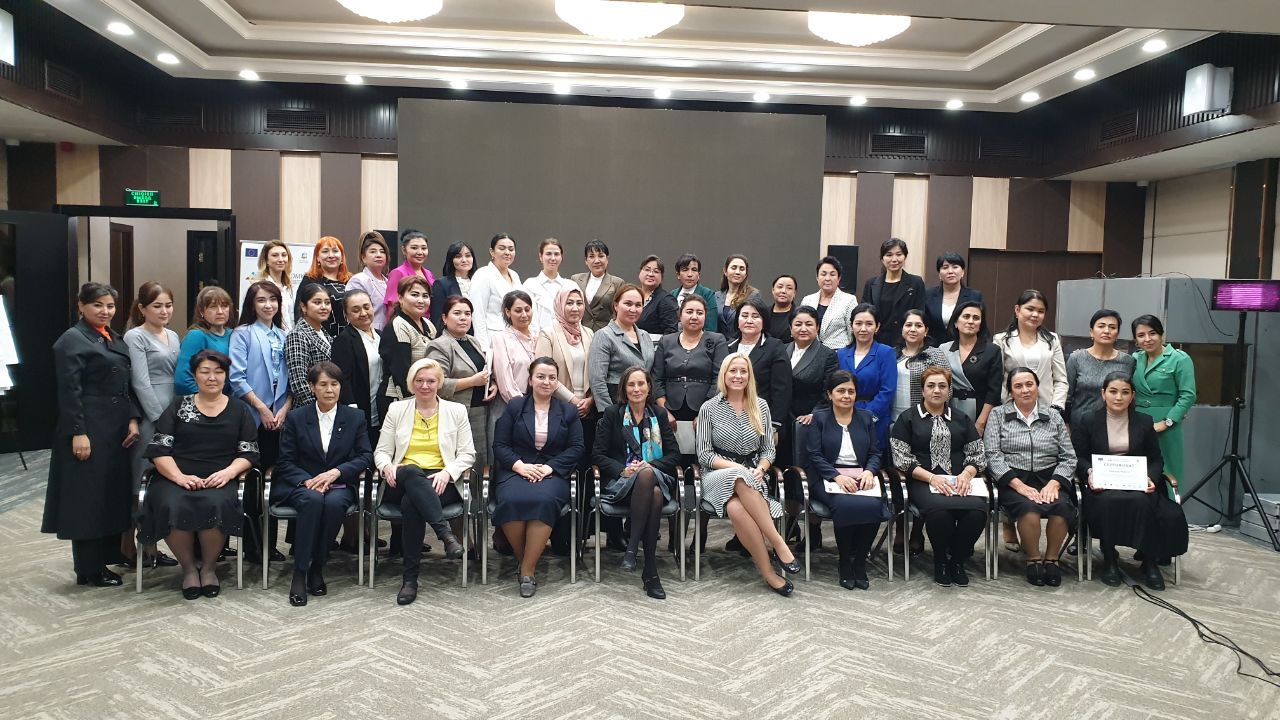The Border Management Programme in Central Asia organised two workshops for female employees of the partner state agencies in the Republic of Uzbekistan in Tashkent (31 October – 1 November) and Bukhara (3 – 4 November). The workshops were designed to complement the previous activities held by BOMCA in Uzbekistan to offer support to female employees of the state agencies and local authorities in the border regions of Uzbekistan. The focus of the training is tailored on the performance of professional duties conditioned by gender. The unique BOMCA methodology in this domain is anchored by the women to women methodology, in which female trainers interact with female employees, thus ensuring a secure trustworthy environment.
The workshop focused on emphasising the importance of gender equality at the workplace and on the national scale, raising awareness of gender roles and stereotypes at the workplace, supporting women’s every-day activities in a more gender-sensitive manner and leading to a more solid vision of female inclusion and women’s empowerment and contributing to the creation of a more socially-just and sustainable societies and communities.
During the event, experts from European Union Member States familiarized the participants with the international gender perspective to enhance their understanding of gender mainstreaming and equipping them with the necessary tools for integrating the gender agenda into the activities at the national level and in every-day professional activities. Workshop included practical examples, good practices and lessons learnt from the EU, as well as discussion on instruments to support the empowerment of women in a gender-sensitive manner.
Also, the participants are expected to enhance their personal security and resilience to stress, through the practical knowledge received at the training course, especially for their work in the border areas.
It is worth noting that the workshop is in line with the specific objectives of the Component 4 on improvement of cross-border cooperation for better living conditions in border areas through local economic development focusing on human rights, gender equality and support to vulnerable groups.

